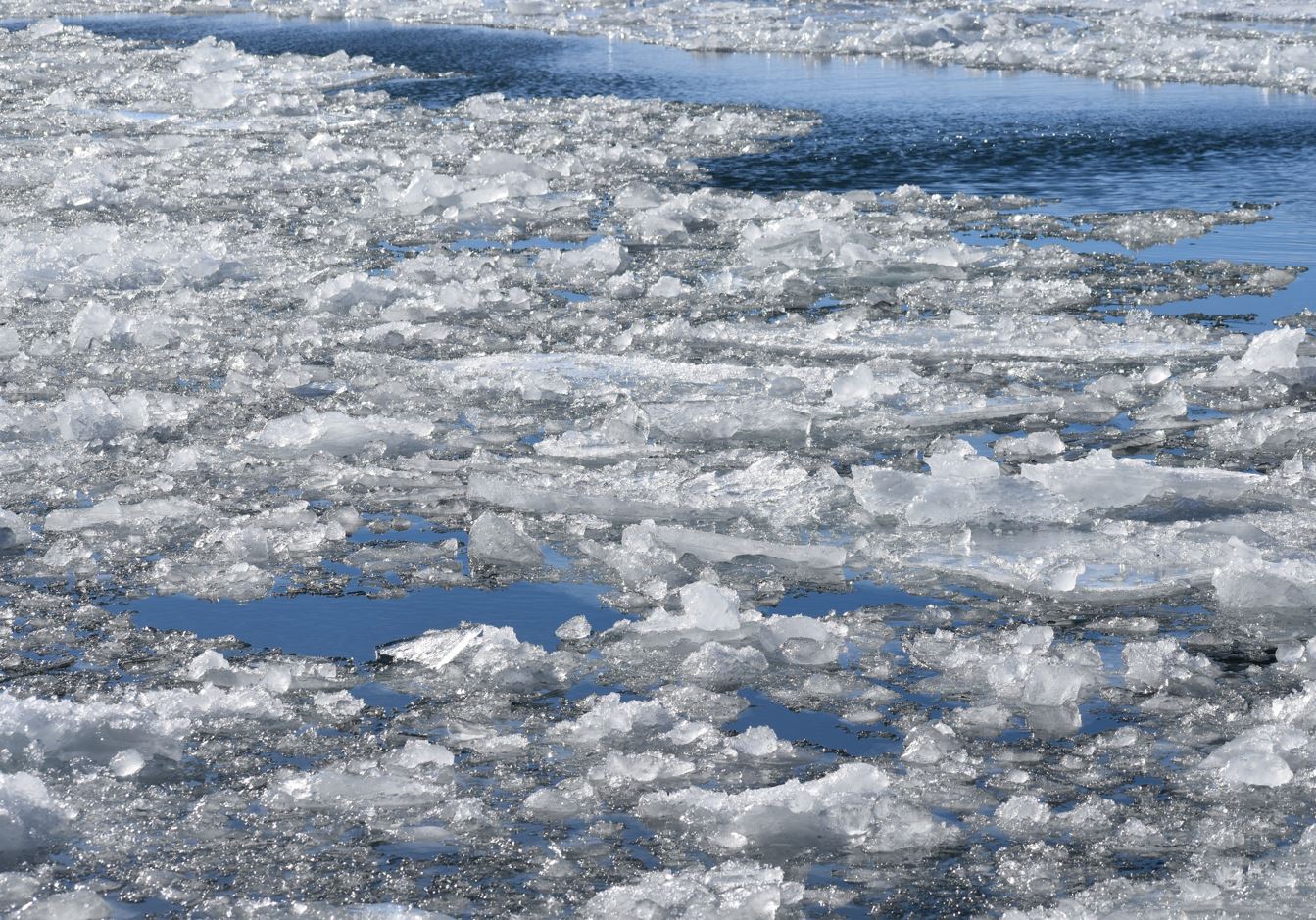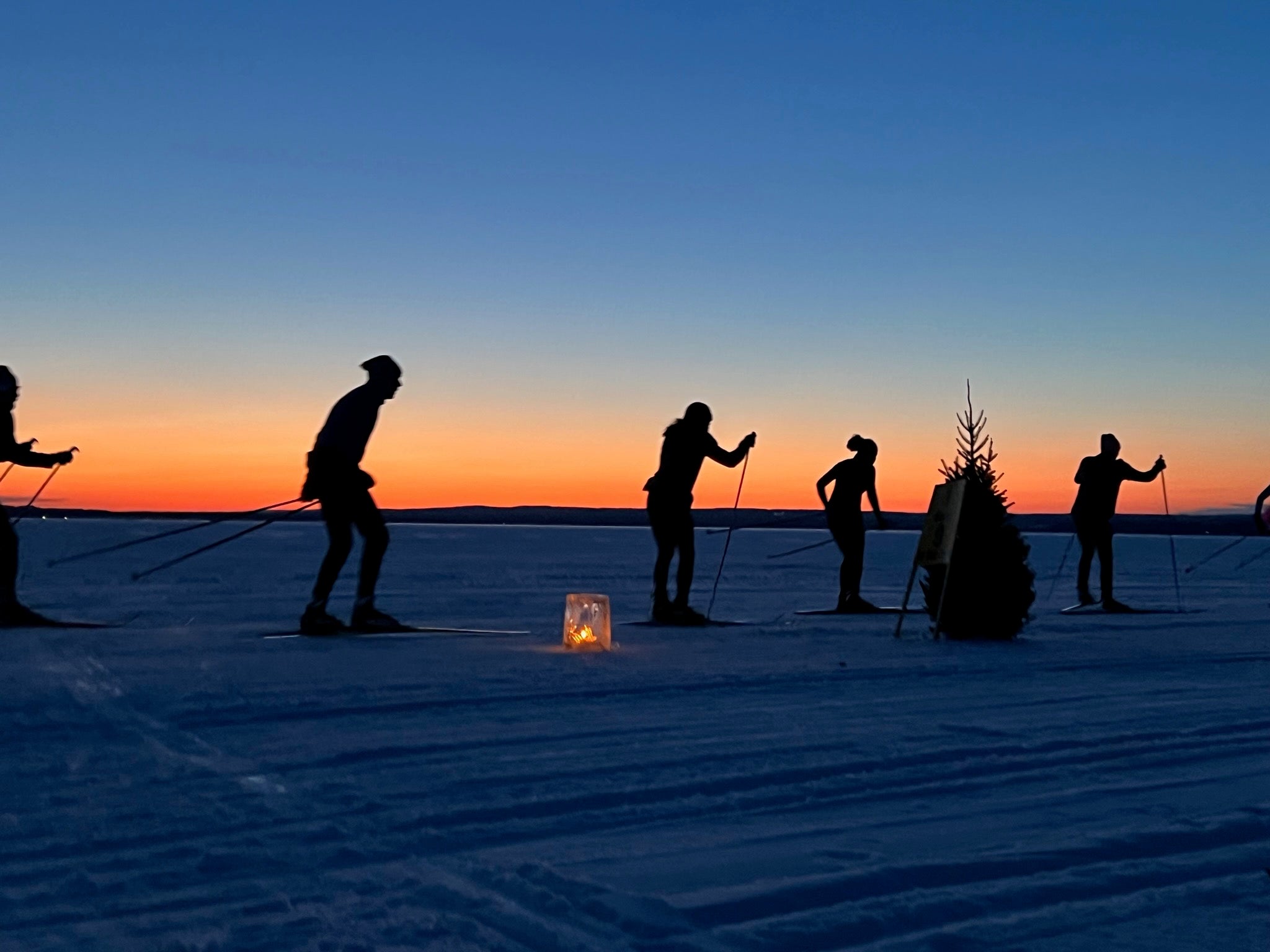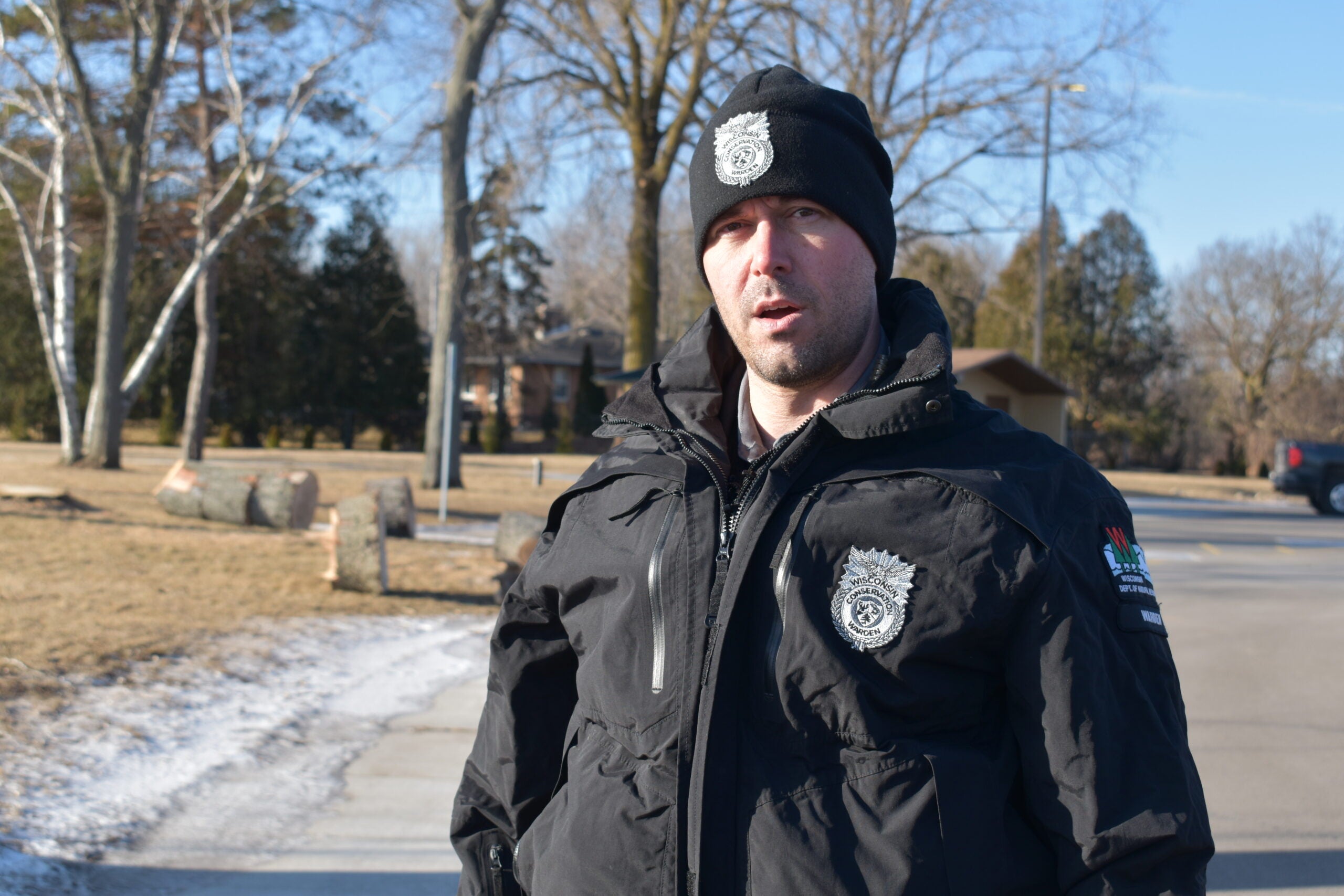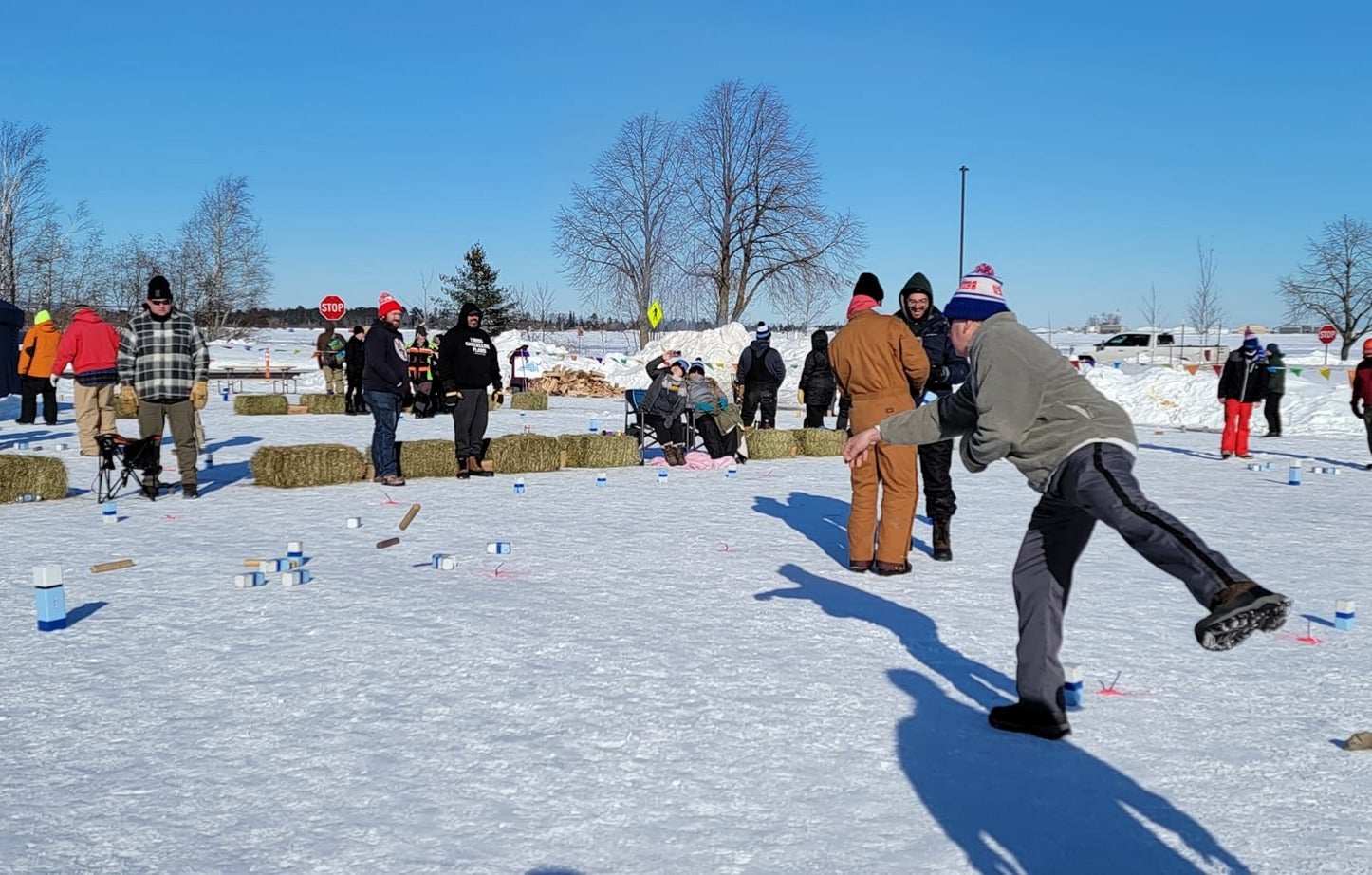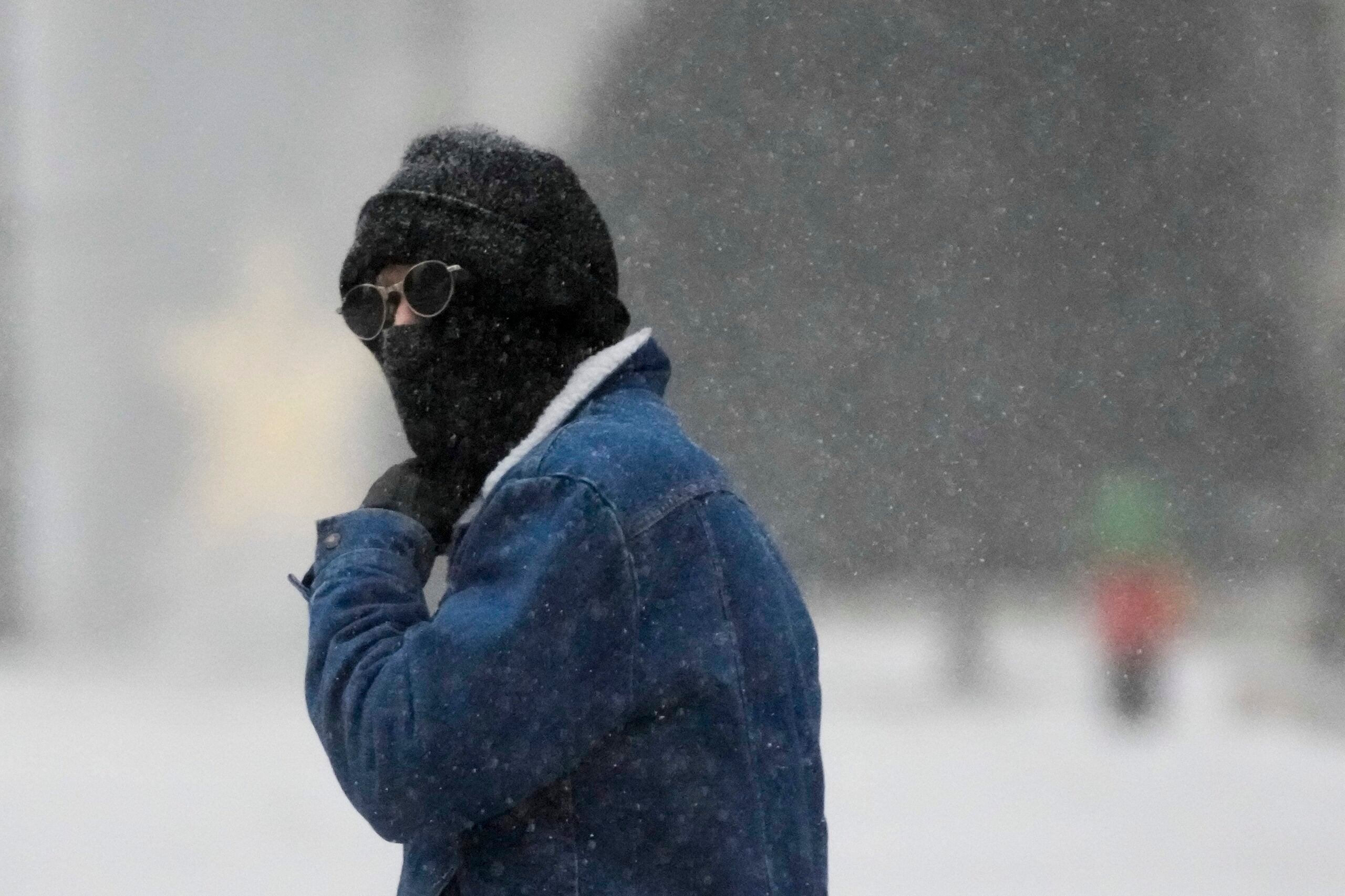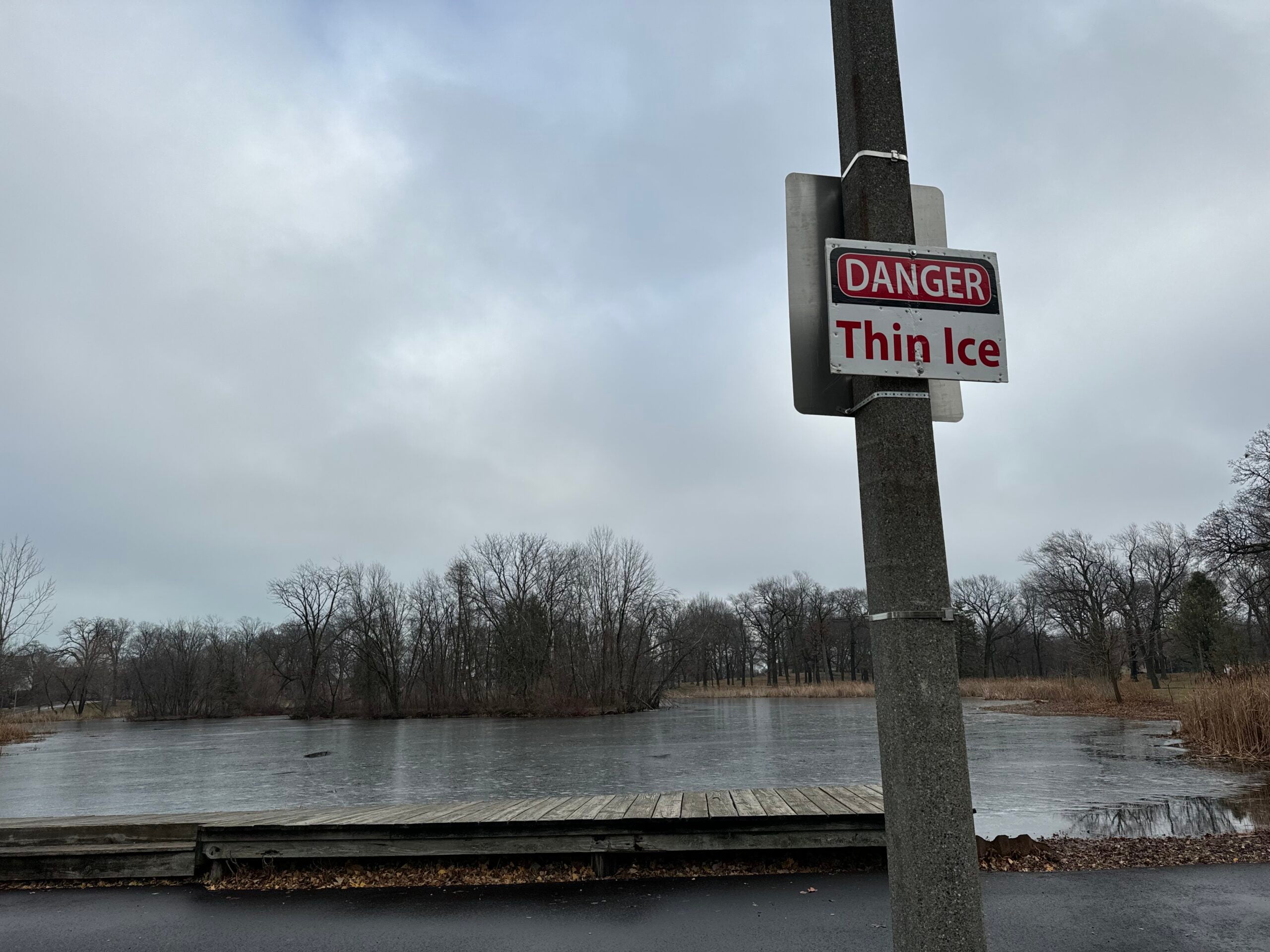Twin Ports residents were saddened last week when a beloved Duluth pastor reported missing for several days was discovered to have fallen into the ice off Superior.
With unusually warm temperatures in recent years — last year being the warmest on record in much of the region — the fluctuation of ice freezing and melting quickly has become common.
“It can absolutely be deceptive,” said Joseph Moore, the warning coordination meteorologist for the National Weather Service in Duluth. “The ice can vary, especially in these early season days when not every lake or stream is truly frozen over.”
Moore spoke with WPR’s Robin Washington on “Morning Edition” about how to best determine if ice is safe to venture on, as well as preparing for an emergency if it isn’t.
Stay informed on the latest news
Sign up for WPR’s email newsletter.
This conversation has been edited for clarity and brevity.
Robin Washington: Your agency has warnings about safety on the ice on its website. It notes that areas that have historically been safe for outdoor activities such as skiing or snowmobiling may not be safe this year.
Joseph Moore: Conditions are going to be different each winter. We may have a long period of cold, clear days that are able to freeze over the trails and lakes, and then other years we don’t.
It’s been pretty windy for the past six weeks up here in the Northland. We’ve had a number of gales, even some storm warnings on Lake Superior, indicating very strong winds. And that really messes with the ice development.
RW: Your mention of the wind reminds me of a couple years ago when a big chunk of ice on Lake Superior broke off and started heading toward Two Harbors, with a couple dozen frozen anglers on it. That was due to the wind, wasn’t it?
JM: Yes it was. There was a good strong southerly wind that was able to break the ice off and create an ice floe. It’s very difficult to predict exactly when that ice is going to break off.
RW: Going back to the Weather Service’s website, there’s a warning that just because one part of a body of water is safe doesn’t mean another area of the same lake or stream is.
JM: If you have a boat with a depth finder, you know the depth of the lake can vary very quickly, especially when you get close to the shoreline.
Ice development is the same sort of thing, especially when the wind moves things around. And with the lower sun angle days that we’re having now, the sun might partially melt a part of a lake but not another part that’s in the shade.
Thickness of the ice is a good guideline, but it’s not just the thickness. You also have to look at the color and listen to the ice. If you can hear it creaking around, it may not yet be safe to be out there.
RW: If we do have to go out by ourselves and encounter a situation, what can we do to protect ourselves? Are those “I’ve fallen and I can’t get up!” devices a good idea for anglers and skaters?
JM: If you can bring a friend along with you, that’s the best choice, because odds are one of you would be able to call for help.
If you do have to go out alone, it’s important to remember the process for rescuing yourself. The easiest way to do that is with a pair of ice picks or ice claws. The Wisconsin DNR has a great web page that even teaches you how to build your own. It’s very easy.
It’s really important if you do fall in to remain calm and crawl yourself out. There are things like personal locator beacons, but when you fall into that ice, they may not be in reach and it’s easy to be shocked by those cold temperatures.
The ice picks are just like a life jacket. You don’t ever want to use them, but you need to have them with you.
If you have an idea about something in northern Wisconsin you think we should talk about on “Morning Edition,” send it to us at northern@wpr.org.
